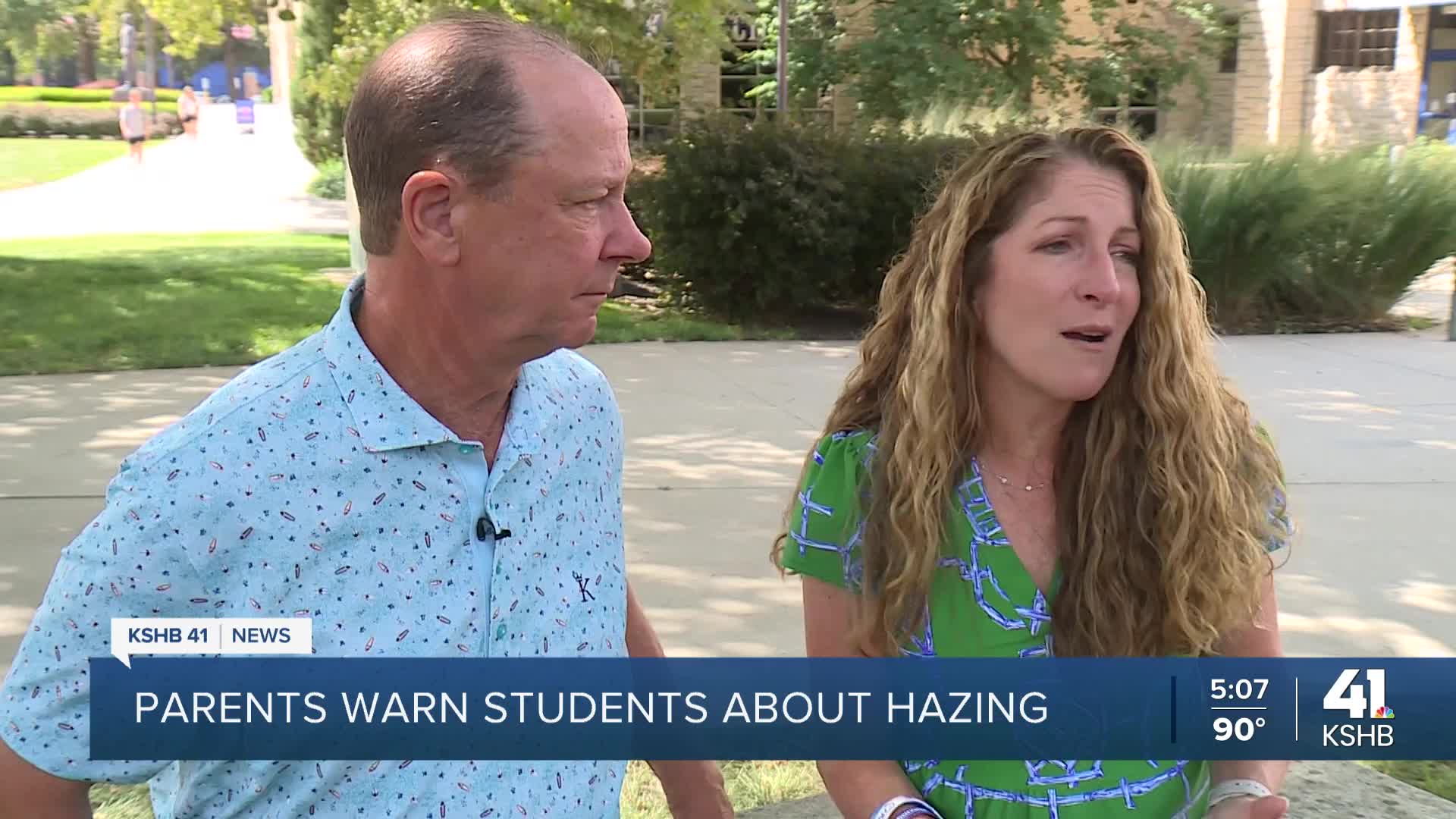KSHB 41 reporter Lily O’Shea Becker covers Franklin and Douglas counties in Kansas. Share your story idea with Lily.
—
Students and parents can learn from Evelyn and Jim Piazza's story.
In February 2017, their son, Tim Piazza, died after a hazing incident at a fraternity house at Penn State University in University Park, Pennsylvania. Their story gained national attention.
“He had 18 drinks in less than an hour and a half, fell down the stairs, was unconscious, they threw him on a couch, they did not call for help," Evelyn Piazza said.
Since then, Evelyn and Jim say they have visited between 250 and 300 colleges across the country. Their story of loss has reached over 200,000 students.
On Wednesday, they brought their story to the University of Kansas.

“When Tim died, we didn’t know that much about hazing, and I feel like his death was pivotal in making a statement, and if we don’t do something, it’s not fair to the next student, the next parent," Evelyn Piazza said.
The Piazzas describe their son as "the most loyal friend you would have ever had," adding that he was "goofy" and "just a good guy."
He was in his second semester of his sophomore year when he decided to go through the recruitment process of Greek life at Penn State.
“He had friends, he had a girlfriend, but he was just looking for a group to be a part of, something special, something to make a big school smaller," Evelyn Piazza said.
At KU, around 4,000 students — or 20% of the the university's undergraduate population — are members of a sorority or fraternity. The university reports 73% of students involved in social fraternities or sororities have experienced a form of hazing.
The Piazzas will share their story with students and university staff members at 7 p.m. Wednesday at KU's Lied Center. They say they paint a picture of impact through their perspective.
“At the hospital, I asked the doctor, ‘If someone would have called for help that evening, would we have a different outcome here?’ and he said, ‘Yeah, we would have,'" Jim Piazza said.
Jim Piazza said he wants their story to be uncomfortable for students.
“It only takes one person to do something egregious or wrong to bring down the whole organization, but it only takes one person to do the right thing as well, and unfortunately, in our case, not one person did the right thing," he said.
While the Piazzas often tell their story to students, they say they want parents to hear it, too. Jim Piazza said he likes to tell parents, "Don't be blind."
“It’s happening," he said. "Make your student aware of it. If it happens to them, they need to walk away, they need to band with the other students in their group and say, ‘No, it’s not happening to us, we’re not doing it.’”
The Piazzas want to bring awareness to the repercussions of hazing.
“We’ve also been able to get the law changed in Pennsylvania and in New Jersey," Evelyn Piazza said.
Under the Timothy J. Piazza Antihazing law in Pennsylvania, hazing that results in serious injury or death is a felony.
In 2024, two former Penn State students pleaded guilty to misdemeanor hazing and reckless endangerment in Tim Piazza's case, according to NBC News.
Hazing is illegal in both Kansas and Missouri. In Kansas, it is a class B misdemeanor. In Missouri, hazing is a class A misdemeanor unless the act causes a substantial risk of life, which then turns into a class D felony.
In December 2024, the Stop Campus Hazing Act was signed into federal law. Under the law, higher education institutions that participate in federal student aid programs are required to report hazing incidents.
The Piazza say it's important for people to know they are not against Greek life and that they're working with fraternities and sororities.
“We’re trying to change the culture a little bit, and it takes a long time to change a culture," Jim Piazza said.
—




